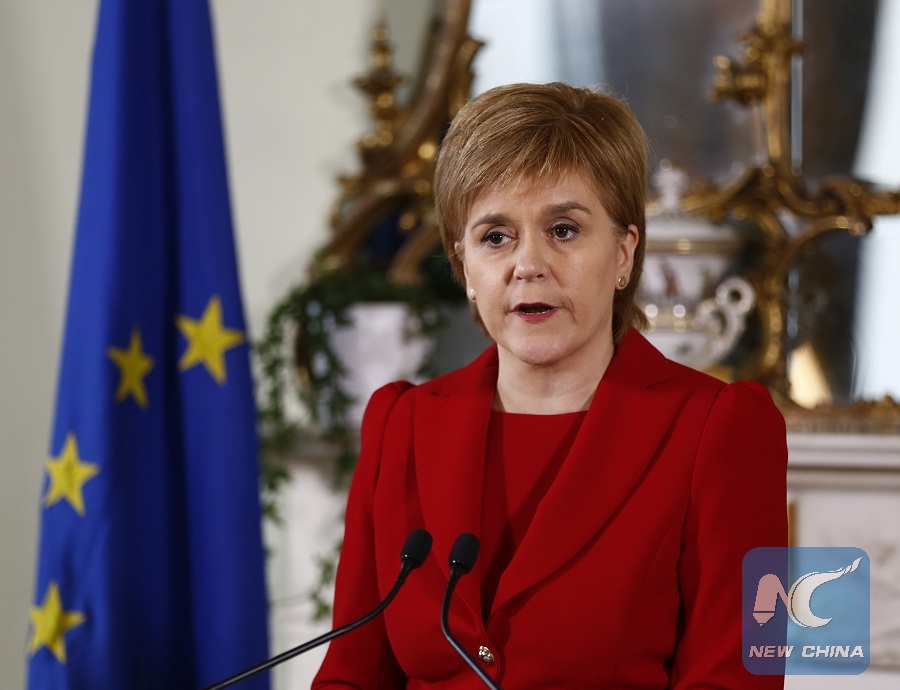LONDON, March 13 (Xinhua) -- Scotland's First Minister Nicola Sturgeon took British politics by surprise on Monday by announcing she would seek a permission for a second referendum on Scottish independence.

Scottish First Minister Nicola Sturgeon speaks at a press conference in Edinburgh, Scotland, Britain, June 24, 2016. Sturgeon said here a second independence referendum was "highly likely" after Britain voted to leave the EU. (Xinhua/Scottish government)
Critics attacked Sturgeon for making her move just as British Prime Minister Theresa May is preparing to trigger the Article 50 process to start Britain's exit from the European Union (EU).
Although Britain voted 52 to 48 percent in favor of Brexit in June last year, voters in Scotland supported the remain camp by a 62 to 38-percent margin.
Sturgeon is the leader of the Scottish Nationalist Party and long-time campaigner for a Scottish breakaway from Britain. According to her, a new referendum would better protect Scottish interests in a Britain outside the EU.
In 2014, the people of Scotland rejected independence by 55 to 45, with the issue said at the time to have been settled for at least a generation.
An independence referendum needs the go-ahead from Westminster, with the process expected to start next week when Sturgeon asks the Scottish Parliament in Edinburgh to make the first move.
If the go-ahead for an independence referendum is given, Sturgeon wants a vote to take place between the fall of 2018 and the spring of 2019, just as Britain's Brexit negotiations with Brussels would be coming to a head.
Ruth Davidson, leader of the Conservatives in Scotland, described Sturgeon's call for a new referendum irresponsible and damaging, adding: "the Scottish people do not want this."
David Mundell, Secretary of State for Scotland said in a statement: "The evidence clearly shows a majority of the people in Scotland do not want a second referendum. Another referendum would be divisive and cause huge economic uncertainty at the worst possible time."
"People in Scotland don't share SNP tunnel vision obsession with independence."
The leader of the main opposition Labour Party, Jeremy Corbyn, said in London: "The 2014 Scottish Independence referendum was billed as a once in a generation event. The result was decisive and there is no appetite for another referendum," but added that if the Scottish Parliament voted for one, his party would not block that decision at Westminster.
"If there is another referendum, Labour will oppose independence because it is not in the interests of any part of the country to break up the UK."
David Watt, director of the Institute of Directors (IOD) in Scotland, said: "Not many in the Scottish business community wanted Brexit, and equally, few want a renewed independence referendum, and the associated continuation of uncertainty."
The latest polls in Scotland continue to show that, by a narrow margin, most Scots still oppose a breakaway from Britain.
Although May has yet to indicate how she would respond to a referendum request, commentators at Westminster are predicting that May will not pave the way for a second referendum until Brexit negotiations have been finalized.















